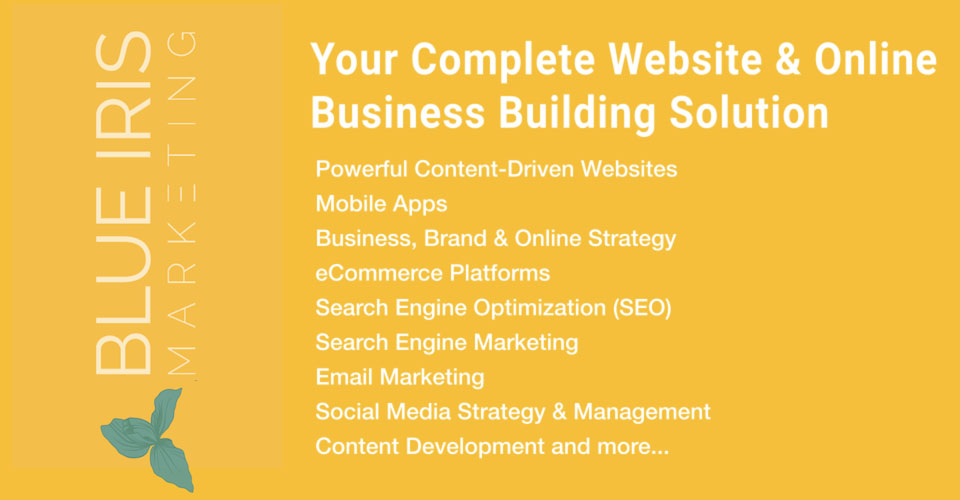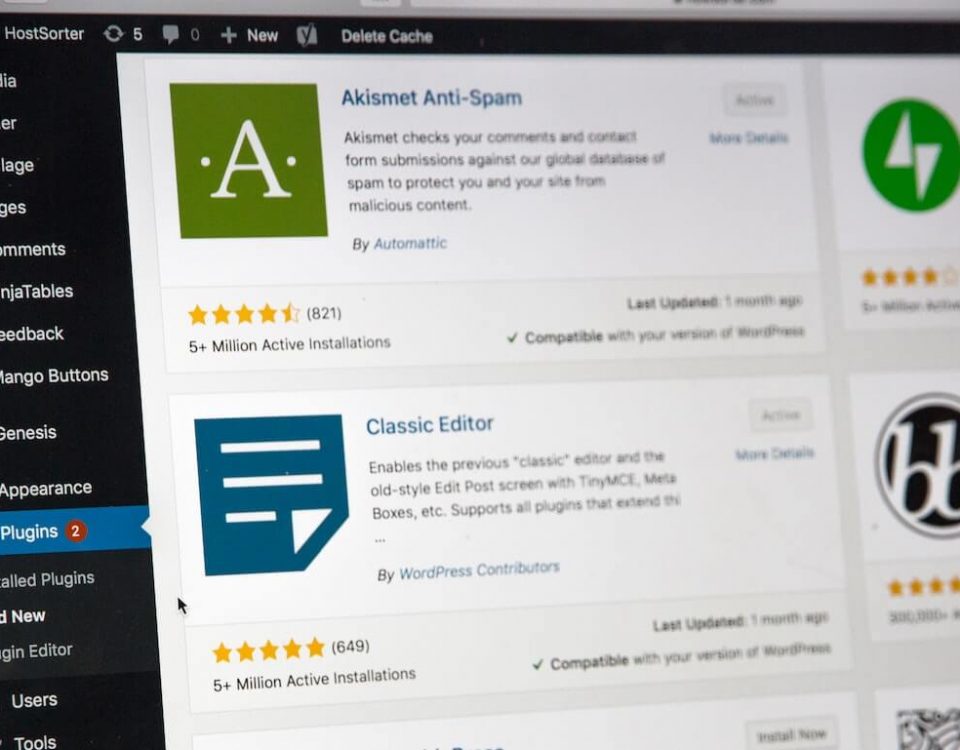How to Create Your Content Marketing Strategy

Are Google’s Latest Updates Killing Your Rankings?
January 15, 2016
How to Grow Your Business With Social Media
February 6, 2016How to Increase Visitors, Conversions and Clients
What is Content marketing?
According to Content Marketing Institute, content marketing is a strategic marketing approach focused on creating and distributing valuable, relevant, and consistent content to attract and retain a clearly-defined audience — and, ultimately, to drive profitable customer action.
Content marketing is the process of creating meaningful content for your visitors and promoting your brand, products or services at the same time.
Content comes in many forms:
- articles
- videos
- eBooks
- infographics
- how-to guides
- photos
- blogs
- emails
- webinars, and more
Content form and frequency is determined by your type of business and the subtle preferences of your targeted audience.
A well-played content marketing strategy can help you reach your marketing goals and go a long way in benefiting your business.
The most important advantages of content marketing:
- Generating more inbound traffic – Internet users are spending more and more time online searching for companies and products that meet their needs. Your brand should rank high in the search engine results. If your competitors are ranking better than you, you are likely losing business. Publishing content specifically designed to attract your targeted audience at the right time and in the right place, can help you get more quality inbound traffic, quickly and efficiently.
- Increasing engagement with targeted audience – Relevant content plays a major role in getting your targeted audience to act. People will get interested in your business if you provide answers to their questions and needs. However, the text is no longer enough to engage your audience. The highest levels of engagement originate from visual content.
If you want your visitors engaged, visual content is a must.
- Users are 30 times more likely to read infographics than text.
- Visuals in the form of videos increase website conversions by 86%.
- Content with images get 94% more views than text-only posts.
- Generating more leads – Without content rich websites and blogs your site visibility and traffic will suffer, therefore your search engine rankings will suffer and ultimately, your business will suffer.
B2B companies that blog generate 67% more leads than those that don’t.
Over 80% of B2B marketers use content marketing to achieve their lead generation goals.
Although it is not an easy process, proper use of content marketing can result in highly profitable leads. Every piece of content you create needs to serve a business objective. It is also important to offer educational content to your visitors rather than continuously peppering them with marketing messages.
Educational content explains a process, product, or service on a deeper level, offers value and engages leads. This type of content should have a strong, visually noticeable call-to-action (CTA) which asks your reader to buy, subscribe, download, etc.
Increasing SEO – Achieving and maintaining high search engine page rankings takes a lot of planning, strategy, implementation, analysis and frequent pivots. Search engine algorithms are always changing and your provider needs to always be ahead of the curve or your website will suffer. High quality content and compliance with certain rules is critically important to achieving and maintaining high search engine page rankings.
To improve SEO, content you create must be relevant to your targeted audience and related to your business or industry. You can create quality content around a keyword or a phrase that is especially interesting to your audience or customers. This will help you boost your search ranking for that particular term and drive more traffic to your website. However, it is no longer advisable to stuff your web page with keywords. Instead, you should employ them strategically throughout your content. The same goes for links. If you can build links correctly within your content, you will be able to improve your page rankings.
Increasing sales – Content marketing can create many sales opportunities. With reliable and efficient content you can educate your targeted audience and make them understand the true value of your products and services. In this way, you are building trust, loyalty and credibility, which turns into referrals and new customers.
Increasing brand awareness and loyalty – Over 85% of marketers consider content marketing an ideal strategy for creating brand awareness and customer loyalty. For example, blogs with interesting, up-to-date and relevant content can create new emotional connections or improve current relations with the target audience. But, content marketing is not just blogging. You need to recognize the significance of other content opportunities which can do wonders for boosting your brand awareness and loyalty. Consider employing infographics, video marketing, podcasts, whitepapers, and more.
How to develop a content marketing strategy?
Content marketing is more than just creating and publishing interesting content. This process must be strategic and it needs to be integrated in your overall marketing and business goals. Your content marketing strategy must be aligned with your brand and driven by your business goals, lead generation and new customer acquisition goals, as well as your SEO goals. With a strong strategy in place, you can develop benchmarks and measurable so you know what’s working and what isn’t.
A content marketing strategy keeps you on track when it comes to planning, producing, promoting, and measuring content performance. In order to create a strategy that works you’ll want to:
- Set content marketing goals – You need to set SMART content marketing goals (S- specific, M-measurable, A- attainable, R – relevant and T – time driven) that are aligned with your overall business goals.
- Define your target audiences – Who are trying to attract to your site? What are their needs and concerns? What types of content do they read and like the most? What do they like to share? How can you best reach them? Answering these questions will help you develop the best content for your targeted audience.
- Determine content types best suited to your business – When you establish your goals and define target audiences you will be able to determine the types of content that will help you reach both.
- Create a content execution plan – A detailed plan can help you track what kind of content you need to create and know when to publish it. You’ll also be able to synchronize your other marketing initiatives for higher yields.
- Create a content promotion process – Not every type of content can be promoted in the same way. You need to choose the most effective promotion channel for every piece of content in order to get maximum reach and effect.
- Measure your content marketing – There are four categories of content marketing metrics that you should manage:
- consumption metrics – page views, video views, document views, downloads and social chatter
- sharing metrics – usually involves likes (shares, tweets, pins, etc.), forwards, inbound links
- lead generating metrics – may include email subscriptions, blog subscriptions, blog comments and conversion rate.
- sales metrics – may include new leads, qualified leads, conversions, new customers or sales
Getting Started
Having a content marketing strategy isn’t something only the big guys do, it has become a requirement. It takes time and perseverance to create a successful one. Some of the top challenges for marketers can be creating engaging content, producing content consistently and measuring content effectiveness. This is why 62% of companies outsource their content marketing.
Planned and executed by marketing professionals, your content marketing efforts will drive traffic to your site and have an exponential impact on leads, conversions and sales.
Need more information? Connect with us here or give us a call. It’s free!





